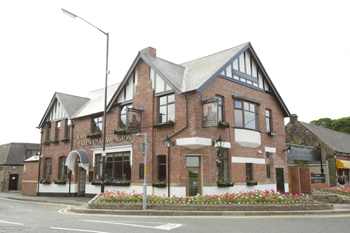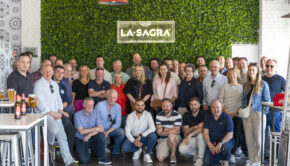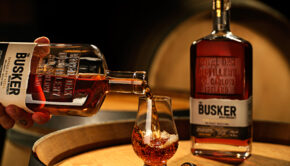Can Wetherspoon’s chameleons settle here?

With the likely entry of JD Wetherspoon and other UK pub chains into the Irish on-trade, Pat Nolan wonders if the on-trade chameleon from the UK can retain its success among the Irish pub-going public.
29 October 2013
To date JD Wetherspoon has managed to populate the UK market with nearly 900 pubs and a number of hotels since venturing out of the traps in 1979. In doing so, Wetherspoon Chairman Tim Martin has managed to prove wrong the naysayers (including his old headmaster JD Wetherspoon who said he’d never amount to much). Last year Wetherspoon enjoyed Operating Profits of £107 million on revenues of £1.2 billion.
But can the licensed trade chameleon make the move into the Irish market profitably this time round? Well, thanks to property prices here at the moment, it can hardly make a loss even if it has to pull out all over again.
With war-weary publicans eager to retire and thick-skinned bankers eager to recoup some of their losses by bargaining off their many licensed property ‘assets’, such cash-rich pub chains as Wetherspoon, Greene King and Mitchels & Butler find themselves looking at a buyers’ market for licensed premises outside Dublin city centre.
Apart from Wetherspoon, Green King and M&B are believed to have been undertaking retail surveys and other studies into the licensed trade market here. Green King in particular is more at home in a traditional suburban working class environment and would look to large units with lots of parking space.
In contrast, Dublin city centre’s licensed trade has escaped relatively unscathed with less than 50 pubs going under during the last five years, many of them continuing to trade in receivership.
Wetherspoon has nine pubs in NI already and certainly sees more attractive property pricing here than it did 10 years ago when it made its last aborted attempt to enter the Dublin market.
Though not cheap, today’s post-Celtic Tiger pub is still more affordable than it was a decade ago. Tim Martin recently commented that 10 pubs could be opened today for the price it cost to open one back then. He recently confirmed that the company plans to buy a number of properties in the Dublin market, possibly as many as six, if the first (as yet unconfirmed at time of going to press) outings in Blackrock’s ‘tonic’ and Dun Laoghaire’s ‘40 foot’ (understood to have been agreed at €1.8 million) prove successful.
Countrywide, the group may be looking at operating as many as 20 or 30 units and Drinks Industry Ireland understands that its already at an advanced stage of negotiations for a venue in Cork.
“We’ve made a few offers on sites in the Republic of Ireland,” confirmed JD Wetherspoon spokesman Eddie Gershon, “but nothing has been signed or sealed.”
Despite a 17% drop in sales of alcohol here with 959 pubs closing since 2007 (64 of them in 2012 alone), Wetherspoon’s believes that there’s an opportunity to do well in opening its style of pubs here in Ireland.
“It’s a big country with a ‘pub-going’ culture like the UK,” he told Drinks Industry Ireland.
At this point then, the asset potential is providing some degree of Dutch courage for the bean counters at Wetherspoon’s. Its Chief Executive John Hetson and Tim Martin himself were over here recently to look at potential money-spinners.

Tim Martin recently commented that 10 pubs could be opened today for the price it cost to open one back then.
Food operation
There’s another reason for the spike in interest from across the water. The increase in income from food-based operations in Irish pubs is thought to be attracting such groups due to their streamlined operational efficiencies in this aspect of running a pub. While there’re a lot of pizzas and pints going for under €10 on Mondays, Tuesdays and Wednesdays in pubs here at the moment, Wetherspoon uses its own architects and designers to redesign premises to be ergonomically efficient so that two or three staff can run it rather than 10.
So cash-rich UK pub chains could indeed make a killing if they get the formula right for the Irish market.
That’s some ‘if’.
“The formula has adapted over the years to take account of the different environments and countries or regions throughout the UK,” explained Eddie Gershon, “We source local ales, for example and serve haddock, not cod, in Scotland. We will try to adapt our pubs to reflect the fact we are in Ireland.
“Many of our customers visit us to eat in the UK and we would expect that to be the case in Ireland. But many visit for drinks and coffees also. We have a broad range which is available all day.”
Eddie Gershon stated that while drinks and food prices would be competitive the company had yet to set the price of a pint.
“We’ll not be bothered about the prices in existing pubs,” he told the Sunday Independent recently, “We would always have very competitive decent prices for food and beverages as a core value. People come to Wetherspoon’s for numerous reasons and prices would be just one criterion.”
Nor does the company see any particular differences between the British and Irish pub trade.
“People eat and drink,” he added, “It’s as simple as that. We try to reflect the areas in which the pub is situated, whether that’s something on the menu or a particular beverage, but we’re not opening an ‘Irish’ pub in Ireland.
“We’re just opening regular pubs. We’re just opening what we feel are extremely good pubs which happen to be in the Republic," he said.
?Effect on suppliers ?
The other question is to what extent Irish suppliers to the on-trade will be adversely affected by the entry of a pub chain with JD’s buying power? This might well be giving the major suppliers sleepless nights.
“Anything that makes the on-trade’s health better has to be welcomed,” said one prominent supplier none too convincingly. Whistling a cheery but tuneless air going past the graveyard, he claimed to see it as an opportunity, “But whether they’ve our brands on the counter or not is another matter,” he admitted.
“But there again, it could be a nightmare for them as it’s not just the beer but the services, gas supplies etc.”
As another supplier put it: “You can’t just line the route with pubs to make the logistics easier; you need to have the pubs in the right place”.
He believes that the entry of a UK pub chain will cause retail revolution in the suburbs, especially in this type of food-led outlet.
“Mitchels & Butlers, Harvesters etc – I think that’s where it’s at,” he said, “There’s a need in the marekt that’s not being filled more around family casual dining although there are some good examples in the suburbs of this sort.”
If a family can go somewhere that feeds it well for €60 rather than €120 then the market’s right for someone to come in and do just that at a much lower cost, he explained.
There again, he wondered what their supply chain’s going to look like – even on the food side – with consumers here being so aware of provenance?
This is reflected in the fact that in order to supply their customers Lidl and Aldi here have had to nail their local supplier colours to the mast.
“We’d be aiming to source a substantial amount locally” responded Eddie Gershon, “particularly on our menu. Things like milk, bread, eggs and so on we aim to buy in Ireland from Irish producers. But equally, what we’ve done over the years is to find new and – hopefully – interesting products from around the world and made them available in our pubs which has proved attractive for our customers. For example we were the first to stock Kopparberg cider from Sweden in the UK. We also took an award-winning malt whisky from Wales (Penderyn) and stocked it companywide. Sales in Scotland were as high as anywhere else.”
But private Irish pub buyers might not let the UK chains have it all their own way.
According to a report in the Irish Independent, “Deals totalling more than €14 million have been done for 13 Dublin pubs this year and most of those have been bought by private buyers rather than major companies”.
“We’re not the fattened calf ready for the slaughter any more,” comments David L’Estrange, a pub-owner and accountant to many Dublin publicans, “We’ll give them a run for their money.”
However he does concede that Dublin publicans might find it difficult to compete with a 900-pub estate on the beer front if they should decide to import from the UK.
He’s right. Margins here have always been a lot higher.
“If they can get the volume, they can sell the beer a bit cheaper,” he admits.
Conclusion
Outside the city centre, food has become essential to suburban pubs but few do this well.
And while Tim Martin needs to be careful in underestimating the mindset of the Irish people who value their pubs, in the end, the consumer has the choice of not drinking in an English pub chain-owned premises – and isn’t that what it’s all about, more choice?
“The world has changed, not ended,” sighs David L’Estrange with a realistic outlook on the development.
Could we be heading back to a reinvention of the Irish bar trade?



 Print
Print





Fans 0
Followers